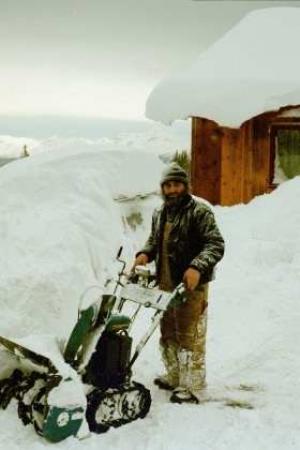-
About Homer
-
- Americans with Disabilities Act Compliance Program City Campgrounds Community Recreation Hickerson Memorial Cemetery
- Library Parks & Trails Public Safety Fire Police Emergency Information
- Events & Activities City Calendar Library Calendar Recreation Calendar Doing Business in Homer Sister City Program Coast Guard City
-
- Departments
- Government
- How Do I?
Tsunami, Earthquakes, Snowstorms, Flooding...Are you a prepared Alaskan?
This checklist can help you prepare for any emergency or disaster.
Detailed how-to guides are available at the Fire Department and other emergency service organizations.
FOOD PREPARATION / COOKING
- Have a rotating stock of 14-30 days of basic canned and bulk foods you like to eat
- Comfort foods, snacks, vitamins
- Baby needs (diapers, bottle liners, formula, baby wipes, etc.)
- Paper plates, aluminum foil, zip-lock bags
- Non-electric can opener
- Propane ranges most will operate without electricity (not for space heating)
- Portable propane stove (use in well ventilated areas only)
- Charcoal barbecues and gasoline stoves (use outside only)
- Fireplace or wood stove can warm or cook food and melt snow
WATER
- Store water in jugs or bottles
- Water heater (turn off before draining)
- Toilet tanks (water is safe in tank)
- Pools, tubs (store water for washing, etc.)
- Snow melting requires a lot of fuel
- Streams (must be treated)
- Water treatment filters or water treatment tablets to treat drinking water
- Household bleach to treat raw water, add 16 drops per gallon of water and allow to stand for 30 minutes for chlorine to act
HEAT
- Wood stoves and fireplaces
- Clean, inspect and maintain chimneys
- Matches, fire starter, and adequate firewood for 30 days continuous use
- Kerosene heaters and other fueled space heaters (use in well ventilated areas only)
POWER
- Surge protectors for electrical equipment especially computers
- Unplug unnecessary appliances if power goes out to avoid power surges
- Portable generator, extension cords, and fuel for generator (operate generator outside)
- AA battery pack adapter for cellular phones
- Batteries for flashlights, radios, etc. (store in refrigerator for longer life)
- Hearing aid or other special use batteries
LIGHTS
- Flashlights
- Propane lanterns (use in well ventilated areas only)
- Oil lanterns and lantern fuel
- Candles
- Matches placed with each lantern and candle
SANITATION
- Extra trash bags for trash
- Paper towels, toilet paper, and towelettes
- Outhouse, portable toilet or five-gallon pail with trash bag liners
- Personal hygiene items and baby wipes
CLOTHING / BEDDING
- Warm clothing
- Sleeping bags or extra blankets and quilts
PET SUPPLIES
- Food & water
- Medicine
FINANCES
- Cash (one week to one month cash reserve)
- Records (up to date copies of all financial records)
DOCUMENTS
- Birth Certificates, Marriage Certificates, and Wills
- Passports, Social Security cards, mortgage papers, and payment histories
- Last year's tax records
- Insurance policies and investment records
- Bank account records, loan payments, bill receipts, credit card records
- Lease Agreements, Deed of Trust, promissory notes
- School / college transcripts
- Medical records and vaccination records
MEDICAL
- Alternative housing plan if required due to a medical condition
- Prescriptions (thirty day supply)
- Medications and medical supplies
TRANSPORTATION
- Fill all fuel tanks
HOME SAFETY
- Complete First-Aid kit
- Large fire extinguisher(s)
- Battery operated smoke detector and CO detector
- Portable radio
- Basic tool kit
- Know location of utility shut-offs (water, electricity, water, propane, etc.)
- Store extra fuel in an appropriate safe location
Consider placing essential items in a kit or cache location so they can be found quickly.
Consider possible relocation sites if your home is uninhabitable for any reason.



